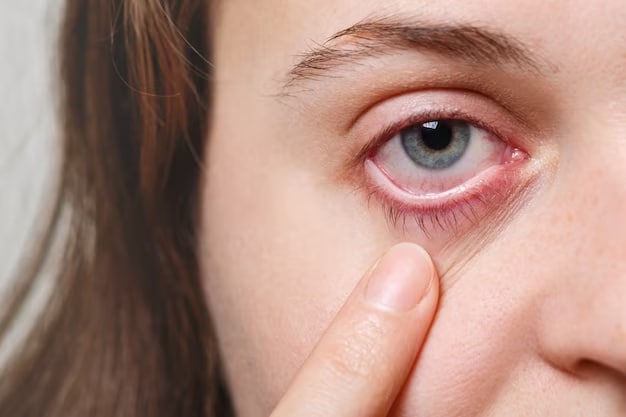Browse Eyewear

Vaping has become a popular alternative to smoking, with many people using it as a way of quitting. But could this habit also cause dry eye syndrome? In this article, we will explore the potential link between dry eye syndrome and vaping, along with dry eye syndrome treatments.
What is dry eye syndrome?
Dry eye syndrome (DES) is a condition that affects millions of people around the world. It occurs when the eyes do not produce enough tears or, if they do produce enough tears, those tears evaporate too quickly. Symptoms can vary from person to person but commonly include burning, stinging, itching, and redness in the eyes. Dry eye can be caused by a variety of factors, including age, medical conditions, and lifestyle choices.
Can Vaping Cause Dry Eye Syndrome?
There is some evidence that suggests vaping could be linked to dry eye syndrome. A study from 2020 found that vapers were 50% more likely than non-vapers to develop dry eye syndrome after 1 year. However, the study did not identify a single cause for this increased risk and further research is needed to confirm this potential link. The use of a dry herb or wax concentrates can also increase the risk of dry eye due to the release of irritants from these materials when they are heated up and inhaled.
What Are the Symptoms of Dry Eye Syndrome?
The most common symptom of dry eye syndrome is dryness and irritation in the eyes, which can cause redness, stinging, and burning. Other symptoms may include dry patches on the eyes, blurred vision, sensitivity to light, and difficulty wearing contact lenses. In some cases, dry eye syndrome can also lead to headaches or a feeling of pressure behind the eyes.
Dry Eye Syndrome Treatment
The best way to manage dry eye syndrome is to identify and address its underlying cause. If vaping is one of the potential causes, reducing or quitting vaping may help reduce symptoms. Artificial tears can be used to relieve dryness and discomfort but should not be used as a replacement for regular eye drops prescribed by your doctor. Eating a healthy diet rich in omega-3 fatty acids has also been found to be beneficial for dry eye syndrome.
Summary
While further research is needed to fully understand the potential link between dry eye syndrome and vaping, there is evidence that suggests vaping could increase the risk of dry eye syndrome in certain individuals. If you are concerned about dry eye symptoms, it is important to talk to your doctor and discuss possible treatments or lifestyle changes to help reduce symptoms.
Yes, using dry herb or wax concentrates can increase the risk of developing dry eye as they contain irritants that are released when heated up and inhaled.
The best way to manage dry eye syndrome is to identify and address its underlying cause. Artificial tears can also be used to relieve dryness and discomfort but should not be used as a replacement for regular eye drops prescribed by your doctor. Eating a healthy diet rich in omega-3 fatty acids has also been found to be beneficial for dry eye syndrome.
A study from 2020 found that vapers were 50% more likely than non-vapers to develop dry eye syndrome after 1 year. However, the study did not identify a single cause for this increased risk and further research is needed to confirm this potential link.



